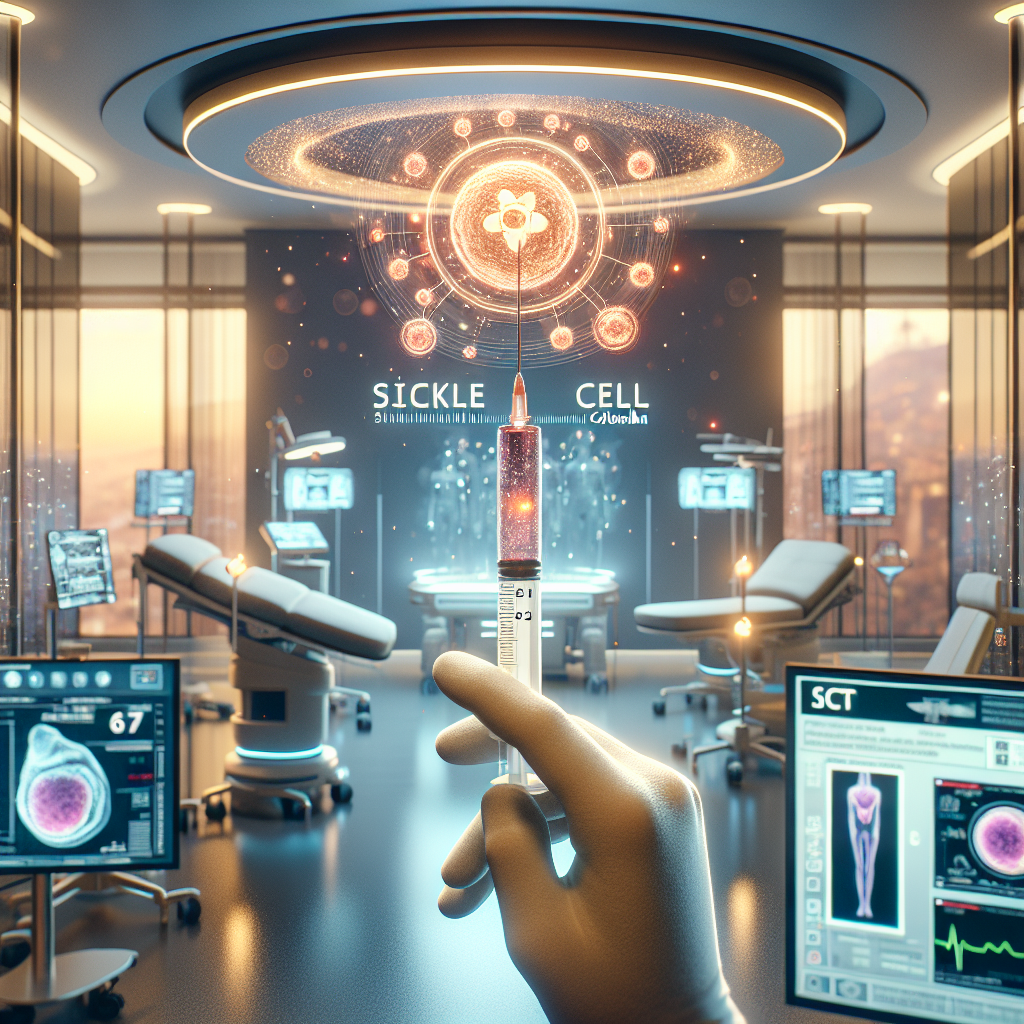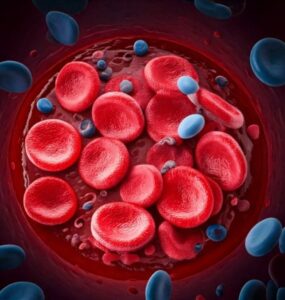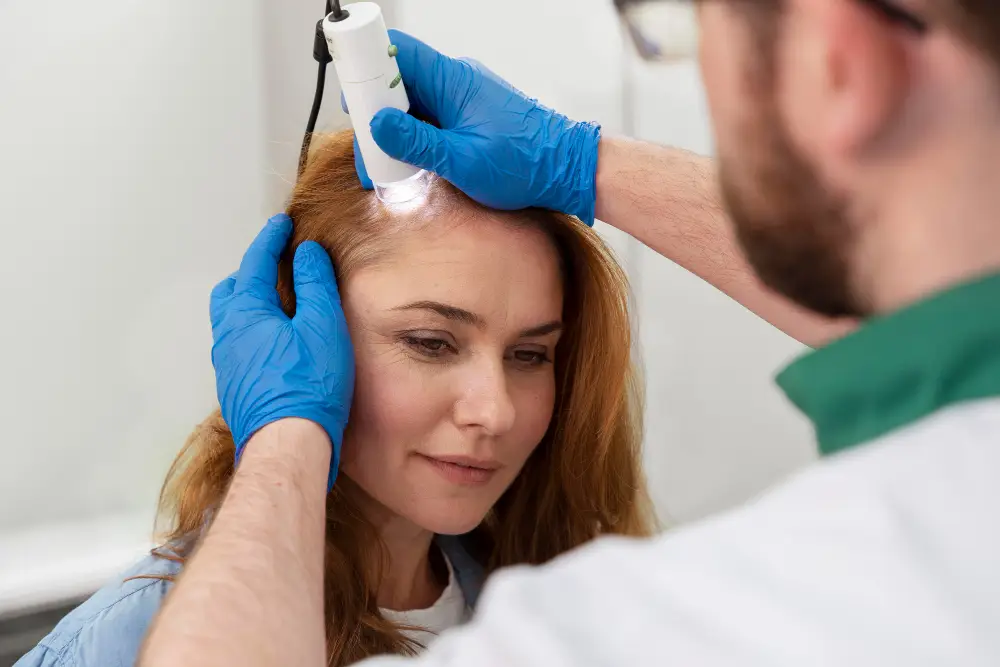
Key Takeaways for Navigating Sickle Cell Stem Cell Treatment
- Sickle cell disease is a serious genetic blood disorder, and hematopoietic stem cell transplantation (HSCT) offers a pathway to potentially alter its course for eligible individuals.
- Understanding the nuances of HSCT, including its benefits and potential considerations, requires clear, evidence-based information from trusted sources like the NIH and PubMed-indexed journals.
- Pereira, Colombia, is emerging as a compelling destination for advanced medical care, offering a supportive environment, modern infrastructure, and a focus on patient-centered journeys.
- Overcoming anxieties about seeking advanced care involves addressing concerns around safety, logistics, and treatment efficacy through transparent communication and dedicated patient advocacy.
- A confidential case review is a crucial first step to assess individual suitability and explore personalized treatment pathways with the team at Regencord in Pereira, Colombia.
Sickle Cell Stem Cell Treatment: Understanding Your Options and Pathways to Wellness
Navigating a diagnosis of sickle cell disease or considering advanced treatment options like stem cell therapy can be an overwhelming journey. For many, the search for comprehensive, ethical, and accessible care leads to a complex array of information and choices. At Regencord, located in Pereira, Colombia, our communications team is dedicated to providing clarity and support, empowering you with the knowledge to make informed decisions about your health journey. This guide delves into the specifics of sickle cell stem cell treatment, offering insights into the patient experience and the distinctive advantages of seeking care in Pereira.
Table of Contents
- Introduction: Your Journey Towards Informed Decision-Making
- The Stakes & Critical Implications of Sickle Cell Disease
- The Conventional Approach in Colombia for Sickle Cell Management
- The Pereira, Colombia Advantage: A Context for Advanced Care
- Your Guide to Clarity: Introducing La Brújula Celular de Regencord
- Our Regenerative Philosophy & Patient-Centered Approach
- Overcoming Common Hesitations: Why Seeking Clarity is a Strategic Advantage
- Glossary of Key Terms
- Frequently Asked Questions
- Your Next Step: Confidential Case Review
- Disclaimer
Introduction: Your Journey Towards Informed Decision-Making
For individuals and families grappling with sickle cell disease, the pursuit of effective care is often a deeply personal and emotional quest. This inherited genetic blood disorder affects millions globally, leading to chronic pain, anemia, and potentially life-threatening complications. While conventional management focuses on symptom control and preventing crises, advancements in medical science have introduced more profound interventions, chief among them being hematopoietic stem cell transplantation (HSCT).
Understanding HSCT—often referred to as sickle cell stem cell treatment or bone marrow transplant—is the first step towards evaluating its potential for you or a loved one. Our goal is to demystify this complex topic, providing you with a clear, empathetic, and evidence-based perspective. We aim to address the questions and concerns that arise at every stage of this journey, from initial inquiry to post-treatment considerations, all while highlighting how the team at Regencord in Pereira, Colombia, is structured to support you in exploring these advanced pathways.
The Stakes & Critical Implications of Sickle Cell Disease

Sickle cell disease (SCD) is far more than a simple blood disorder; it’s a systemic condition that can impact nearly every organ system in the body. It arises from a genetic mutation that causes red blood cells to become rigid, C-shaped (sickle-shaped), and sticky. These abnormal cells can block blood flow, leading to severe pain episodes (vaso-occlusive crises), chronic anemia, organ damage (including stroke, kidney disease, and acute chest syndrome), and a potentially shortened life expectancy. The World Health Organization (WHO) identifies sickle cell disease as a major global public health challenge, with a significant prevalence in regions across Africa, Asia, and the Americas.
The daily reality for many living with SCD involves navigating chronic pain, frequent hospitalizations, and a constant vigilance against life-threatening complications. According to information provided by the U.S. National Institutes of Health (NIH), despite ongoing research and improvements in symptomatic treatments, the disease significantly impacts patients’ quality of life and longevity. Hematopoietic stem cell transplantation (HSCT), often called sickle cell stem cell treatment or bone marrow transplant, represents a transformative approach because it aims to replace the faulty blood-forming stem cells with healthy ones. Ideally, this leads to the production of normal red blood cells and a potential modification of the disease’s course, offering a chance for a life with significantly reduced or absent SCD symptoms.
This demanding procedure involves several critical stages: preparing the patient’s body (often with chemotherapy or radiation to suppress the existing bone marrow), infusing healthy stem cells (typically from a compatible donor), and then meticulously monitoring the engraftment of these new cells. While HSCT holds considerable promise for eligible individuals, it is a significant medical undertaking with potential considerations that necessitate a thorough and personalized evaluation by a highly experienced medical team.
The Conventional Approach in Colombia for Sickle Cell Management

In Colombia, the healthcare system is designed to provide various levels of medical care, including the management of genetic conditions such as sickle cell disease. The national health policies and regulations are overseen by the Colombian Ministry of Health and Social Protection (Ministerio de Salud y Protección Social). This body is responsible for establishing the standards that all healthcare providers must adhere to, ensuring a structured and regulated environment for patient care across the country. Additionally, INVIMA, the National Food and Drug Surveillance Institute, plays a pivotal role in regulating the safety and quality of medical products, devices, and advanced medical services offered within Colombia.
For individuals diagnosed with sickle cell disease in Colombia, the conventional approach to care typically centers on symptom management, complication prevention, and comprehensive patient education. This often involves a regimen of medications for pain control, prophylactic antibiotics to reduce infection risk, and blood transfusions for severe anemia or during acute crises. While these measures are fundamental for improving patients’ daily lives and extending survival, they primarily address the manifestations of the disease rather than its underlying genetic cause.
While the country has made strides in healthcare access, the availability of highly specialized therapies like hematopoietic stem cell transplantation (HSCT) can still vary significantly across different regions and medical institutions within Colombia. Patients and their families frequently face the challenge of navigating the system to identify centers that possess the requisite infrastructure, the collective experience of highly trained medical teams, and the specific expertise in performing these intricate and delicate procedures. This search often demands extensive personal research and significant coordination, underscoring the critical need for transparent information, dedicated patient navigation, and robust support systems. While the national framework endeavors to provide comprehensive care, the nuanced complexities of advanced treatments highlight the distinct capabilities and patient-focused approaches offered by specific regional centers, such as those found in Pereira.
The Pereira, Colombia Advantage: A Context for Advanced Care

When evaluating options for advanced medical treatments like sickle cell stem cell therapy, the broader environment of care—beyond just the clinical setting—becomes an integral consideration. Pereira, the dynamic capital of the Risaralda department, stands out as a compelling choice for patients seeking high-quality, patient-centered care, setting itself apart through a combination of unique contextual advantages.
Modern Infrastructure and High Medical Standards
Pereira has steadily grown into a recognized hub for healthcare innovation and medical excellence within Colombia’s coffee region. The city is home to modern medical facilities outfitted with advanced diagnostic and treatment technologies, all operating under the stringent national health standards established by the Colombian Ministry of Health and rigorously monitored by INVIMA. These institutions are specifically designed and equipped to manage complex procedures, including the intricate requirements of regenerative medicine pathways. The concerted effort to integrate state-of-the-art equipment with highly trained medical teams ensures that patients have access to sophisticated and comprehensive care pathways that prioritize safety and efficacy.
A Human-Centered Patient Journey Guided by Experience
Our deep experience at Regencord has illuminated that patients pursuing advanced treatments for conditions like sickle cell disease often contend with not only significant medical complexities but also a profound emotional and informational void. We have found that bridging this gap through clear, empathetic guidance from the very first inquiry, coupled with a meticulously mapped out and supported logistical pathway, transforms initial anxiety into informed empowerment. This strategic approach makes the potentially daunting prospect of managing a serious medical condition, especially one that may involve international care components, considerably more manageable and less stressful.
For patients engaging with the team at Regencord in Pereira, Colombia, this philosophy translates into a deeply supported and streamlined experience. From the moment you connect with us, our dedicated patient advocacy team provides comprehensive guidance on every step of your journey. This includes simplifying the coordination of travel arrangements, identifying suitable accommodation options, facilitating local transportation, and meticulously scheduling all necessary appointments. Our primary objective is to alleviate as many logistical burdens as possible, thereby enabling you to focus entirely on your health, healing, and overall well-being.
A Unique Therapeutic and Welcoming Environment
Beyond its robust clinical infrastructure, Pereira offers a distinct therapeutic environment that significantly contributes to the patient experience. We’ve consistently observed that the city’s inherent cultural warmth and its community-oriented ethos play a vital role in patient well-being, fostering a sense of psychological comfort and support that is crucial for recovery from intensive treatments. This empathetic backdrop, combined with the region’s progressive stance on biotechnological advancements and its strategic accessibility—both within Colombia and for international travelers—cultivates a unique, holistic healing ecosystem. This environment thoughtfully complements the clinical excellence provided by the medical team, enhancing the overall patient journey.
Many patients find that the welcoming nature of the local community, the pleasant temperate climate, and the serene natural beauty of the surrounding coffee region contribute positively to their recovery experience. These elements collectively create a conducive atmosphere for healing, recuperation, and a sense of peace during what can be a challenging time. This holistic consideration of the patient’s physical and emotional environment is a defining characteristic of the care philosophy embraced in Pereira.
Your Guide to Clarity: Introducing La Brújula Celular de Regencord

Navigating the intricate journey involved in considering sickle cell stem cell treatment can often feel like traversing unfamiliar terrain. To provide you with transparent, structured, and actionable information, the team at Regencord is proud to introduce La Brújula Celular de Regencord (Regencord’s Cellular Compass). This unique and practical resource is meticulously designed to serve as your essential navigational tool, guiding you through the critical considerations pertinent to hematopoietic stem cell transplantation for sickle cell disease.
La Brújula Celular de Regencord systematically outlines the key phases of the patient journey. This includes everything from the initial eligibility assessment and comprehensive pre-treatment preparations to the complex transplantation process itself, and subsequently, the crucial post-treatment follow-up and long-term monitoring. It is crafted to help you formulate the most relevant questions to ask, gain a clear understanding of the typical timeline involved, and effectively prepare for both the logistical and emotional aspects that accompany advanced medical care of this magnitude.
This branded resource is developed on fundamental principles of transparency, patient empowerment, and scientific clarity. It ensures that you have access to a structured framework that enables you to organize your thoughts, consolidate information, and facilitate more meaningful and informed discussions with your medical team. La Brújula Celular de Regencord stands as a testament to our unwavering commitment to making complex medical information accessible, digestible, and ultimately, actionable, transforming initial uncertainty into confident and informed decision-making for your health journey.
Our Regenerative Philosophy & Patient-Centered Approach

At Regencord in Pereira, Colombia, our approach to patient care is deeply anchored in a forward-thinking regenerative philosophy. This perspective acknowledges and seeks to leverage the body’s remarkable intrinsic capacities for healing and regeneration. For conditions as impactful as sickle cell disease, this means actively embracing and facilitating access to advanced pathways, such as hematopoietic stem cell transplantation (HSCT), that are designed to address the fundamental genetic root cause of the disorder rather than solely managing its symptoms. Our overarching focus is on offering eligible individuals opportunities for profound, long-term health improvements and a significantly enhanced quality of life.
Central to our ethos is a truly patient-centered approach, ensuring that every individual’s journey is recognized as unique and deeply personal. We understand that the considerations involved in a demanding procedure like HSCT are not only medically complex but also laden with personal circumstances and emotional weight. Therefore, the medical team undertakes a comprehensive and meticulous evaluation of each patient’s specific medical history, current health status, and potential suitability for treatment. Throughout this process, ethical considerations and transparent communication remain paramount, guiding every recommendation and decision.
We are steadfastly committed to continuous learning, the integration of cutting-edge research, and the diligent application of evidence-based practices, drawing extensively upon global research findings and established medical guidelines, including those from the NIH and PubMed-indexed literature. Our essential role as a communications and patient advocacy team is to ensure that you, the patient, have seamless access to information that authentically reflects these principles. This information is consistently presented in an understandable, compassionate, and supportive manner. We firmly believe in fostering an environment where patients feel genuinely heard, deeply respected, and thoroughly informed at every critical stage of their engagement with the dedicated medical team at Regencord.
Overcoming Common Hesitations: Why Seeking Clarity is a Strategic Advantage
Embarking on a journey for advanced medical care, particularly for a life-altering condition like sickle cell disease, naturally comes with a range of hesitations, uncertainties, and critical questions. It is not only normal but indeed crucial to acknowledge these concerns and proactively seek clear, factual, and supportive answers. Our extensive experience has consistently demonstrated that addressing these common barriers openly and empathetically helps to transform initial uncertainty into confident, informed action.
Concern 1: “Is medical care in Colombia, especially for complex treatments like stem cell therapy, truly reliable and safe? I’m concerned about regulatory standards and quality.”
It is entirely understandable to question the quality and oversight of medical care when considering options in a different country, particularly for highly specialized procedures. However, Colombia operates under a robust and well-established national healthcare regulatory framework. The Ministry of Health and Social Protection (Ministerio de Salud y Protección Social) actively establishes and rigorously enforces stringent standards for all medical facilities and procedures across the nation. Furthermore, INVIMA (the National Food and Drug Surveillance Institute of Colombia) provides critical and comprehensive oversight for medical products, advanced devices, and cutting-edge treatments. This includes ensuring strict adherence to national and often international benchmarks. Medical centers in Pereira, including those the Regencord team collaborates with, are deeply committed to upholding these elevated standards, offering patients transparency and verifiable regulatory assurances explicitly designed to prioritize patient safety and optimize treatment quality. This commitment helps to build trust by focusing on specific, verifiable regulatory oversight rather than generalized concerns.
Concern 2: “The thought of coordinating a major medical treatment internationally, especially for a condition as serious as sickle cell, feels completely overwhelming and too complicated.”
The logistical complexities associated with pursuing advanced medical care, particularly across borders, can indeed appear daunting. Many patients express understandable anxiety about various aspects such as travel arrangements, securing appropriate accommodation, navigating potential language barriers, and meticulously scheduling a multitude of appointments. This is precisely where the role of a dedicated patient advocacy team becomes absolutely invaluable. The team at Regencord is specifically structured and trained to simplify this entire process for you. From your very first inquiry, we commit to providing meticulous support for every logistical detail, including personalized travel planning, arranging suitable local accommodation, coordinating ground transportation, and precisely scheduling all necessary medical appointments. Our primary objective is to significantly alleviate these logistical burdens, thereby enabling you and your family to concentrate entirely on your health, healing, and recovery, transforming a potentially overwhelming prospect into a guided, streamlined, and profoundly manageable experience.
Concern 3: “How can I be sure this treatment offers real hope without being misled, given the sensitive nature of sickle cell disease and the perceived ‘newness’ of some stem cell approaches?”
For a condition with the profound impact of sickle cell disease, the desire for effective treatment is deeply felt, as is the critical need for realistic and ethically presented expectations. Hematopoietic stem cell transplantation (HSCT) has an established and growing scientific foundation for its potential to alter the course of sickle cell disease for carefully selected and suitable candidates. Reputable international sources like the U.S. National Institutes of Health (NIH) and numerous peer-reviewed journals indexed in PubMed provide extensive, well-documented data on its mechanisms, efficacy, and outcomes. The approach facilitated through Regencord involves a thorough, individualized evaluation by the medical team to meticulously determine a patient’s suitability for these advanced pathways. This process provides clear, evidence-based insights into the *potential* for long-term benefit and significant disease modification, always prioritizing transparent and candid assessments. Our unwavering commitment is to foster trust through scientific rigor, ethical communication, and the provision of honest, comprehensive information.
Concern 4: “The cost of such an advanced treatment for a genetic blood disorder must be astronomical, and I worry about hidden fees or financial surprises.”
Financial considerations are undeniably a significant concern for any major medical procedure, especially one as advanced as stem cell treatment for sickle cell disease. While we cannot provide specific cost figures without a detailed understanding of your unique case, it is crucial to approach this aspect with a focus on comprehensive value and absolute transparency. The team at Regencord believes deeply in providing utmost clarity regarding all financial aspects. A confidential case review represents the ideal opportunity to openly and thoroughly discuss your specific medical needs, accurately assess your eligibility for various treatment pathways, and gain a complete understanding of all the financial considerations involved. This meticulous process ensures that you receive comprehensive information upfront, enabling confident and informed financial planning without any undue pressure or the worry of unexpected surprises.
Glossary of Key Terms
- Sickle Cell Disease (SCD): An inherited genetic blood disorder characterized by abnormal, rigid, sickle-shaped red blood cells that can block blood flow, leading to pain, anemia, and organ damage.
- Hematopoietic Stem Cell Transplantation (HSCT): A medical procedure that replaces unhealthy blood-forming stem cells with healthy ones, often referred to as bone marrow transplant. It’s a primary method for sickle cell stem cell treatment.
- Bone Marrow Transplant (BMT): A common term often used interchangeably with HSCT, referring to the transplantation of stem cells primarily found in the bone marrow.
- Genetic Blood Disorder: A medical condition caused by abnormalities in an individual’s genes, which specifically affect the production or function of crucial blood components.
- Vaso-Occlusive Crisis (VOC): A severe pain episode that is a hallmark of sickle cell disease, directly caused by blocked blood flow from the characteristic sickled red blood cells.
- Engraftment: The vital biological process by which transplanted stem cells successfully begin to grow, multiply, and produce new, healthy blood cells within the recipient’s body.
- INVIMA: Colombia’s National Food and Drug Surveillance Institute, the primary government agency responsible for rigorously regulating the safety and quality of medical products, devices, and services in the country.
- Ministry of Health and Social Protection (Colombia): The overarching governmental body in Colombia responsible for formulating and overseeing national public health policy, standards, and healthcare services.
Frequently Asked Questions
- What is the primary goal of sickle cell stem cell treatment?
- The primary goal of hematopoietic stem cell transplantation (HSCT) for sickle cell disease is to replace the abnormal, faulty blood-forming stem cells with healthy ones obtained from a compatible donor. This procedure aims to enable the patient’s body to produce normal, healthy red blood cells, thereby potentially altering the underlying disease course and significantly reducing or eliminating its debilitating symptoms and complications. Ultimately, this leads to a substantial improvement in the patient’s quality of life and long-term health outlook. While transformative, it aims for a profound modification of the disease rather than a definitive “cure” in absolute terms.
- Who is considered a suitable candidate for hematopoietic stem cell transplantation (HSCT) for sickle cell disease?
- Suitability for HSCT is determined through an exceptionally rigorous and comprehensive evaluation conducted by a qualified medical team. Key factors considered include the patient’s age, their overall health status, the specific severity of their sickle cell disease, and critically, the availability of a suitably matched donor (most often a close family member like a sibling). Each individual case is assessed meticulously to carefully weigh the potential benefits of the procedure against its inherent considerations. A confidential case review with the team at Regencord can provide detailed insights and help clarify if you or your loved one might be considered for these advanced pathways.
- What are the potential considerations associated with sickle cell stem cell treatment?
- HSCT is a highly complex medical procedure that carries potential considerations. These can encompass risks associated with the conditioning regimen (often chemotherapy or radiation), infection, the possibility of graft-versus-host disease (GVHD), and various organ-related complications. The medical team will provide a thorough and detailed overview of all potential considerations, ensuring that patients and their families are completely informed about every aspect of the process, including the pre-treatment phase, the transplantation procedure itself, and the subsequent post-transplant recovery period. Open communication is central to this understanding.
- How long does the entire patient journey for sickle cell stem cell treatment typically take in Pereira, Colombia?
- The overall timeline for HSCT for sickle cell disease can vary quite significantly based on a multitude of factors, including individual patient needs, the availability of a suitable donor, and the specific treatment protocol designed. Generally, the process encompasses several distinct stages: an initial comprehensive evaluation, donor matching and preparation, the pre-transplant conditioning phase, the transplantation procedure itself, and a subsequent period of close medical monitoring for engraftment and early recovery. This intensive phase of the journey often spans several weeks to a few months, followed by an extended period of ongoing medical follow-up and rehabilitation. Our dedicated patient advocacy team provides detailed, personalized timelines and planning during the initial confidential case review process.
- What specific support is available for patients traveling from outside Pereira, whether from other parts of Colombia or internationally?
- The team at Regencord in Pereira, Colombia, is meticulously structured to provide comprehensive support to all patients throughout their medical journey, regardless of their origin. This robust support includes extensive assistance with logistical planning, such as coordinating travel arrangements, identifying and booking suitable accommodation options, and facilitating efficient local transportation. Furthermore, we prioritize clear and continuous communication with the medical team, ensuring that any potential language barriers are effectively managed to foster complete understanding. Our overarching goal is to make the entire process as seamless, stress-free, and supportive as possible, thereby enabling you to concentrate fully on your health and well-being.
Your Next Step: Confidential Case Review
Understanding the advanced pathways available for sickle cell stem cell treatment is a profoundly significant step towards making truly informed decisions about your health. This journey is inherently personal, and the need for clear, compassionate, and fact-based guidance is paramount.
If you or a loved one are actively seeking comprehensive information and wish to evaluate the potential of hematopoietic stem cell transplantation for sickle cell disease, we warmly invite you to take this crucial next step.
Discover if you are a candidate for the regenerative medicine pathways available through the team at Regencord in Pereira, Colombia. Contact us for a confidential case review.
Our dedicated patient advocacy team stands ready to provide you with personalized support, patiently answer all your questions, and guide you through the process of exploring your treatment options with utmost clarity and confidence. We are here to help you navigate this important and potentially life-altering journey with empathy and expertise.



